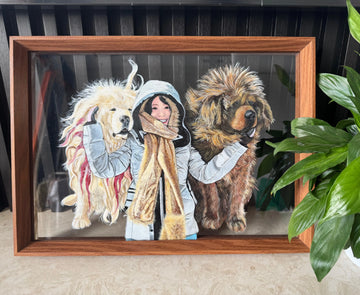If you’ve ever wished you could keep your cat forever, you’ve probably wondered: “How much would it cost to clone my cat?” The short answer: cloning a cat is possible, but it’s extremely expensive, emotionally complicated, and not as simple as getting your best friend “back.”
What Does It Actually Mean to Clone a Cat?
When people hear “cloning,” they sometimes imagine something out of a sci-fi movie. In reality, cloning a cat means creating a new kitten that shares the same DNA as your original cat. It’s a genetic twin, not a resurrected version of the pet you lost.
A simplified version of the process looks like this:
- A vet takes a small biopsy (skin sample) from your cat while they’re still alive, or shortly after passing.
- Specialists store and grow those cells in a lab.
- The DNA is transferred into a donor egg, which is then implanted into a surrogate mother cat.
- If the pregnancy is successful, the surrogate gives birth to a kitten that is a genetic copy of your cat.
Even with identical DNA, personality, behavior, and even markings can turn out differently because environment, upbringing, and random development all play a role.
How Much Does It Cost to Clone a Cat?
As of today, cloning a cat through a leading U.S. provider typically costs about $50,000 for the cloning procedure alone. Some international labs quote slightly lower prices—often in the $30,000–$35,000 range—but total costs can still end up comparable once you include travel, vet care, and logistics.
When you zoom out, many pet-care and veterinary sources now estimate that the full journey of cloning a single pet can fall somewhere between $50,000 and $100,000 once you include:
- Genetic preservation (cell banking)
- Annual storage fees for those cells
- Veterinary exams and biopsy procedures
- Travel and lodging, especially if you live far from the cloning provider
- Potential medical care if there are complications for the surrogate or kittens
In other words, cloning is not a premium add-on to normal pet care—it’s a major financial decision on the level of a luxury car, a house down payment, or college tuition.
Cost Breakdown: Cloning vs. Genetic Preservation
| Step | What It Covers | Typical Price Range (USD) |
|---|---|---|
| Genetic preservation (cell banking) | Collecting a skin biopsy from your cat and storing the cells in a lab for future cloning. | ≈ $1,500–$2,000 to set up, plus storage fees |
| Annual storage fees | Ongoing cost to keep the preserved cells in deep-freeze storage. | ≈ $100–$200 per year |
| Cloning procedure | Lab work, embryo creation, surrogate care, and delivery of the cloned kitten. | ≈ $30,000–$50,000+ depending on provider and country |
| Veterinary & travel costs | Biopsy appointments, health checks, transport, and any medical care during the process. | Varies widely (hundreds to several thousands) |
| Unexpected expenses | Failed attempts, extra embryo transfers, or complications for the surrogate or kittens. | Impossible to predict; can push costs significantly higher |
On paper, some people focus only on the headline number (“$50,000 to clone my cat”). In real life, the total cost of ownership can be much higher and often spans several years, starting with cell banking long before you decide whether to go through with cloning.

Ethical Questions Vets Are Raising
Because cloning is so expensive and complex, many veterinarians encourage families to think carefully about their “why” before signing any contracts.
Common ethical questions include:
- Is it fair to the surrogate cats used in the process?
- Could the same money save or improve the lives of many shelter cats?
- Will cloning help you heal—or keep you emotionally stuck?
None of these questions have easy answers. But it’s worth sitting with them, preferably with input from an independent veterinarian or counselor, before making a six-figure-level decision.
Is Cat Cloning Really Worth the Money?
Only you can decide what’s “worth it” for your family—but it helps to be brutally honest:
- Financially: $50,000+ is money that could fund college savings, retirement, medical care, or help dozens of animals in need.
- Emotionally: many owners expect cloning to “bring their cat back,” then struggle when the new kitten feels different.
- Practically: your time, energy, and attention will go toward raising a brand-new animal with its own needs—not reliving old memories on repeat.
For some people, even knowing all that, cloning still feels right. For many others, the more they learn, the more they gravitate toward memorial options that celebrate the cat they loved instead of trying to replicate them.
Gentler Alternatives to Cat Cloning
If your real goal is to keep your cat’s memory alive, you have options that don’t involve labs, surrogates, or five-figure invoices.

1. Lifelike “pet clone” art & keepsakes
Hand-crafted memorials can capture your cat’s exact markings, expressions, and “vibes” using your favorite photos. These might include:
- Realistic 3D wool-felt replicas
- Mini “clones” that hang in your car or sit on your desk
- Custom oil paintings that feel like heirloom art
Instead of paying tens of thousands for a lab clone, you invest a much smaller amount in something you can hold, display, and pass down.
2. Adoption and rescue
If you’re ready to open your home to another cat, adoption lets you honor your previous cat by giving a new life a chance. Some owners even look for:
- Cats with similar colors or markings
- Senior cats who need extra love
- Special-needs cats whose care feels meaningful
You may never “replace” the cat you lost—but you can extend the love you shared to another animal in need.
How PetDecorArt Helps Keep Your Cat’s Memory Close
If you love the idea of a “clone” but not the cost or controversy of real cloning, PetDecorArt offers a range of handcrafted, photo-based keepsakes that many cat parents choose instead.
Handmade wool “pet clone” stuffed animals
PetDecorArt’s custom stuffed animal collection turns your cat’s photos into lifelike wool-felt replicas:
-
3D Custom Stuffed Animals From Picture – Lifelike Full Body Pet Portraits
Full-body, needle-felted “pet clones” crafted from your photos, designed to mirror your cat’s pose, markings, and expression as closely as possible.

-
3D Custom Stuffed Animal Clones with Wooden Frame
A compact, framed “mini clone” that can sit on a shelf, desk, or memorial corner at home.

-
Custom Mini Stuffed Animal Pet Clones – Felt Pet Keychain & Bag Charm
Tiny, ultra-portable versions of your cat you can attach to your keys or bag and carry everywhere.
These pieces are handmade, not mass produced—each one is created to celebrate your cat’s unique look and personality using your favorite photos as reference.
Custom pet oil paintings & decor
For wall art you can cherish for decades, PetDecorArt also offers custom pet oil paintings from photos. Skilled artists hand-paint your cat onto canvas or glass, capturing tiny details like whiskers, eye color, and fur texture.
Compared with cloning, these keepsakes:
- Cost a tiny fraction of pet cloning
- Involve no lab animals or surrogates
- Let you remember your cat exactly as you loved them
FAQs About the Cost to Clone a Cat
1. What is the average cost to clone a cat?
In most cases, you’re looking at around $50,000 for the cloning procedure itself, plus extra costs for genetic preservation, storage, and vet care. Some overseas providers may advertise lower prices, but once you factor in travel and additional fees, the total still often lands in the tens of thousands of dollars.
2. Are there cheaper, “budget” cat cloning options?
At the moment, cloning is a niche, high-tech service. There may be price differences between countries or providers, but there are no legitimate “cheap” cloning options comparable to regular vet bills or pet insurance. If something sounds too good to be true, treat it with extreme caution.
3. Will my cloned cat act exactly like my original cat?
No one can promise that. A clone may share your cat’s DNA, but personality is shaped by environment, life experiences, and random development. Some owners say their cloned pet feels similar; others say they feel like a completely different cat who just looks familiar.
4. Can I start by just banking my cat’s cells?
Yes. Many cloning companies offer genetic preservation, where they store your cat’s cells in case you decide to clone later. This has its own setup and annual storage fees. If you’re unsure about cloning, banking can buy you time—but it still represents a long-term financial commitment.
5. What are the best alternatives if I can’t afford cloning?
Most cat parents decide that cloning isn’t the right fit for their budget or values. Instead, they:
- Commission a custom pet portrait or lifelike wool “clone” from a photo
- Create a small memorial space at home with photos, candles, and keepsakes
- Adopt another cat in honor of the one they lost
Options like handmade portraits and replicas from PetDecorArt let you celebrate your cat for a far more accessible price while still feeling deeply personal and meaningful.




